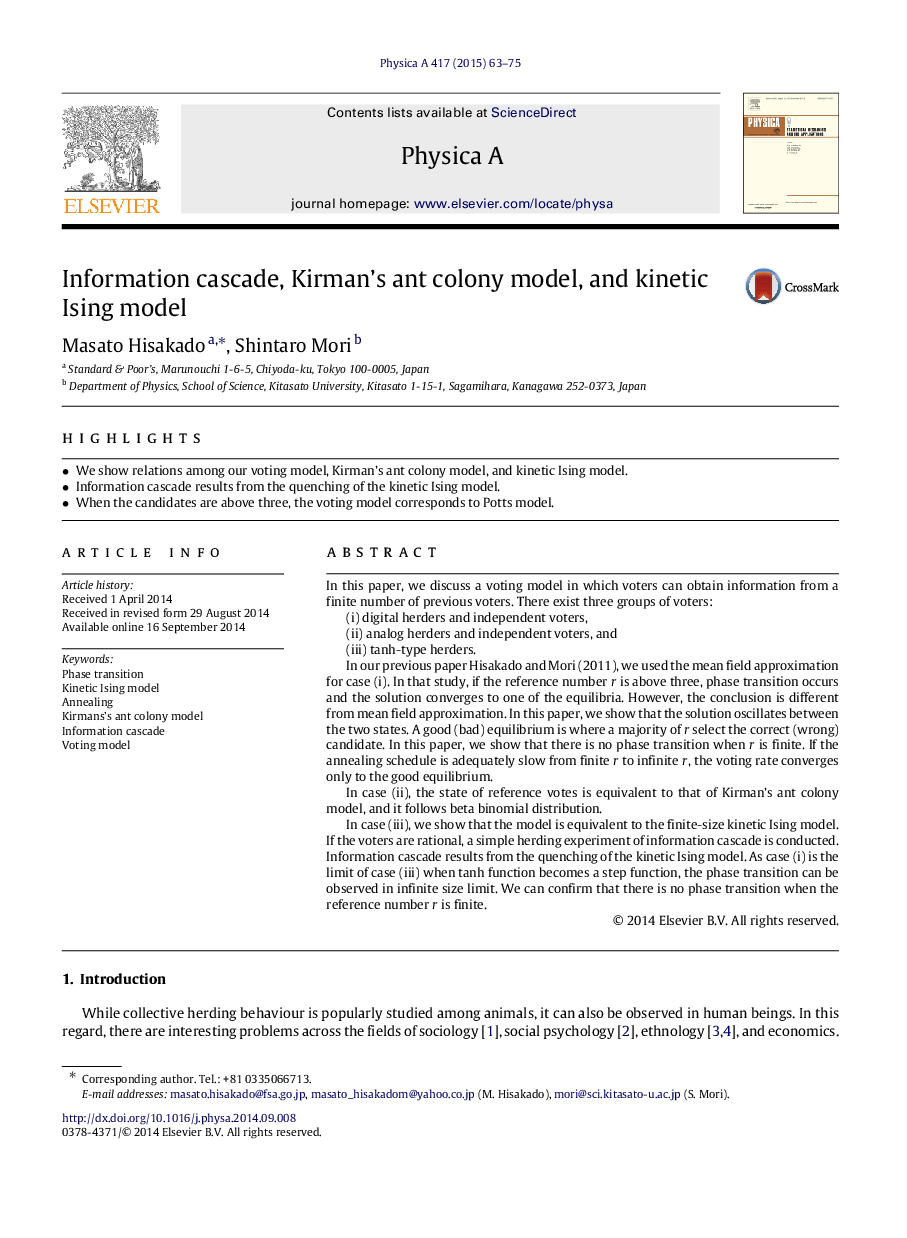| Article ID | Journal | Published Year | Pages | File Type |
|---|---|---|---|---|
| 977123 | Physica A: Statistical Mechanics and its Applications | 2015 | 13 Pages |
•We show relations among our voting model, Kirman’s ant colony model, and kinetic Ising model.•Information cascade results from the quenching of the kinetic Ising model.•When the candidates are above three, the voting model corresponds to Potts model.
In this paper, we discuss a voting model in which voters can obtain information from a finite number of previous voters. There exist three groups of voters:(i) digital herders and independent voters,(ii) analog herders and independent voters, and(iii) tanhtanh-type herders.In our previous paper Hisakado and Mori (2011), we used the mean field approximation for case (i). In that study, if the reference number rr is above three, phase transition occurs and the solution converges to one of the equilibria. However, the conclusion is different from mean field approximation. In this paper, we show that the solution oscillates between the two states. A good (bad) equilibrium is where a majority of rr select the correct (wrong) candidate. In this paper, we show that there is no phase transition when rr is finite. If the annealing schedule is adequately slow from finite rr to infinite rr, the voting rate converges only to the good equilibrium.In case (ii), the state of reference votes is equivalent to that of Kirman’s ant colony model, and it follows beta binomial distribution.In case (iii), we show that the model is equivalent to the finite-size kinetic Ising model. If the voters are rational, a simple herding experiment of information cascade is conducted. Information cascade results from the quenching of the kinetic Ising model. As case (i) is the limit of case (iii) when tanhtanh function becomes a step function, the phase transition can be observed in infinite size limit. We can confirm that there is no phase transition when the reference number rr is finite.
